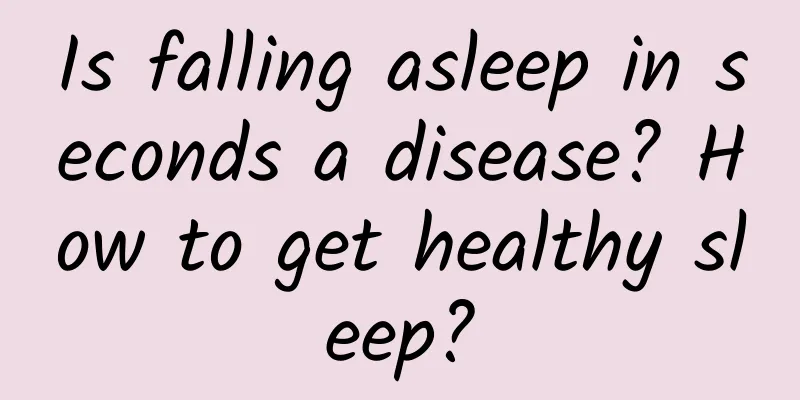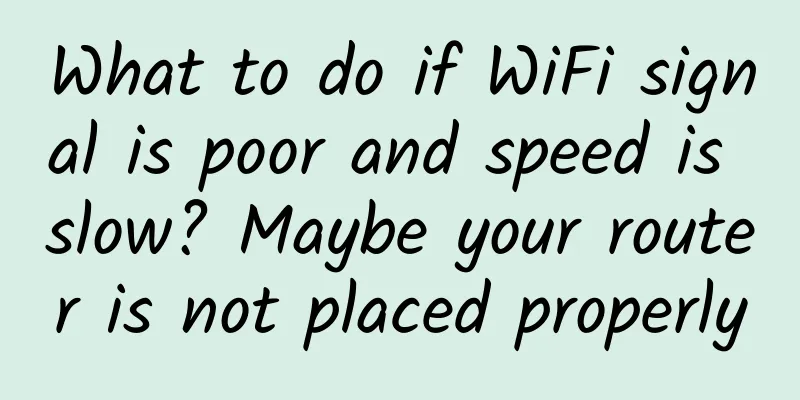Is falling asleep in seconds a disease? How to get healthy sleep?

|
Audit expert: Yin Tielun Deputy Chief Physician, Department of Neurology, Airport Branch, Peking University Third Hospital Many people finish a busy day at work and want to go home to have a good sleep, but they toss and turn in their own nest and can’t fall asleep, thinking: “It’s so annoying not to be able to fall asleep, it would be so nice if I could fall asleep in seconds.” But is falling asleep in seconds as good as you think? You may not know that falling asleep in seconds may be a disease. Source: pixabay Falling asleep in seconds is a disease - narcolepsy There are two types of sleepiness: physiological and non-physiological. Physiological sleepiness is caused by overwork or good sleeping habits, while non-physiological sleepiness is a disease called narcolepsy . The main clinical manifestation of narcolepsy is excessive daytime sleepiness, that is, the patient wants to sleep during the day when he should be awake, and sometimes falls asleep directly. It is characterized by suddenness and inability to control oneself. It is more common in children and adolescents and is highly hereditary. Narcolepsy usually occurs in monotonous and boring situations, such as attending classes, reading, and meetings, but sometimes it also occurs in situations that require concentration, such as driving or walking. Narcolepsy occurs several times a day, each time lasting about 20 minutes. The sleeping state varies from person to person. Some patients are in a semi-asleep state, while others are in a deep sleep state. Some patients also have symptoms such as cataplexy, nocturnal sleep disorders, sleep paralysis, and hallucinations. Source: pexels Patients with cataplexy symptoms will suddenly lose bilateral muscle tone when they are conscious. In mild cases, they will only experience difficulty speaking normally, loose facial muscles, and tongue prolapse. In severe cases, the patient will collapse directly to the ground. The cause of cataplexy is the patient's own excessive emotional fluctuations. Both positive and negative emotions may cause cataplexy in patients. Generally speaking, patients will experience cataplexy symptoms after the onset of excessive daytime sleepiness. Very few patients will experience cataplexy symptoms first. Source: pexels Most patients with narcolepsy suffer from sleep paralysis and hallucinations. Sleep hallucinations are mainly visual, auditory, and olfactory hallucinations, and complex hallucinations of multiple organs may occur. The symptoms of hallucinations may occur before falling asleep, during sleep, and after waking up. Sleep paralysis refers to a condition in which the patient remains conscious at the beginning of sleep or after waking up, but the body is stiff, unable to move, and unable to express his or her thoughts in words. Sometimes it is accompanied by hallucinations, and external interference and stimulation are often required to stop this symptom. Ways to interfere and stimulate the patient include patting the patient, speaking loudly to the patient, etc. After the patient's condition is relieved, if he or she cannot get up or perform limb movements in time, the patient may fall into sleep paralysis again. Some patients with narcolepsy also have nocturnal sleep disorders. Patients with symptoms of nocturnal sleep disorders usually have difficulty falling asleep normally at night and wake up many times during sleep. They may also have various types of sleep movement control disorders, such as being awakened at night and eating at night. Source: pixabay Narcolepsy is dangerous Narcolepsy does not directly threaten life, but its symptoms can cause certain troubles in life and study, and in severe cases may cause severe harm to the body. 1. Loss of memory. Patients with excessive daytime sleepiness sometimes do things without self-awareness, and when they wake up, they lose memory of what they have done. Source: Internet 2. Affecting normal work and study. Patients with symptoms of nocturnal sleep disorders cannot fall asleep normally at night, and excessive daytime sleepiness can lead to inattention, decreased learning ability, slow movements, etc. Excessive daytime sleepiness and inability to maintain a good sleep at night can cause cognitive impairment when the patient's condition is serious, affecting the patient's normal work and study. 3. Mental and emotional disorders. Patients with narcolepsy are more likely to have mental and emotional disorders than normal people. Some patients with narcolepsy also suffer from anxiety and depression, and a small number of schizophrenia patients have the same symptoms as narcolepsy. Some patients with narcolepsy are accompanied by sleep paralysis and hallucinations. Patients with severe hallucinations or fantasies may have comorbid schizophrenia and need to go to a psychiatric hospital for further examination. Source: pexels 4. Affect physical health. Patients with narcolepsy will reduce their exercise time, and their eating habits and eating behaviors are different from normal people. A clinical study concluded that 85% of narcolepsy patients are overweight or obese. Narcolepsy patients may also suffer from syncope, pupil abnormalities, gastrointestinal discomfort, low body temperature and other symptoms, which seriously damage physical health. How to Treat Narcolepsy 1. Non-drug treatment: Non-drug treatment of narcolepsy mainly focuses on improving the patient's lifestyle habits. The patient can improve his condition through diet, sleep, leisure activities and other aspects. (1) Diet: Eat a healthy diet and drink tea or coffee in moderation during the day; (2) Sleep: It is necessary to develop good sleeping habits; (3) Leisure activities: appropriate and reasonable physical exercise, participation in cultural and artistic activities, etc. In short, patients should pursue a colorful life during the day and avoid being in a monotonous environment. In addition, patients should maintain healthy eating and sleeping habits. Source: unsplash 2. Drug treatment needs to be targeted at different symptoms of narcolepsy. For patients with excessive daytime sleepiness, drugs that stimulate the central nervous system, such as modafinil, methylphenidate, amphetamine, etc., can be used; for patients with cataplexy, antidepressants, norepinephrine reuptake inhibitors, etc. can be used; for patients with nighttime sleep disorders, sodium gamma-hydroxybutyrate can be used for treatment. This drug is currently the only drug that has been proven to be effective for nighttime sleep. In addition, narcolepsy also has immunomodulatory treatments and potential new treatments. Source: unsplash Whether it is falling asleep within seconds or other sleep disorders will affect our normal life. In life, we should try our best to maintain healthy eating habits, reasonable work and rest time and appropriate exercise. If we find sleep disorders, we should go to a regular hospital for treatment as soon as possible to avoid worsening of the condition. |
<<: Popular Science Illustrations | Practicing a Big Food Perspective to Protect China’s Rice Bowl
>>: Today is the Autumnal Equinox丨Blue sky, yellow leaves, autumn colors
Recommend
Tik Tok short videos are so explosive! So how do short videos attract traffic?
Using short video platforms to create precise tra...
Why do you always feel that you are not good-looking?
This article was reviewed by Zhao Wei, MD, associ...
Zhang Chaoyang: Sohu Video will take over the PGC banner
"There are always big things about to happen...
This highly hidden cancer has killed too many people.
Liver cancer has taken too many lives. Hong Kong ...
Shrimp or "monkey" is actually a "little bug" with strong survival ability.
Artemia, also known as Artemia, Artemia shrimp, a...
After investing tens of millions, you can understand the advertising promotion bidding mechanism here!
On a media platform, there will be tens of thousa...
Monument Valley design concept is learning is earning
We call those legendary, promising and unique com...
Fall in love with emotions "Let's take a lesson (analysis of wrong chatting and girls' chatting psychology)"
Fall in love with emotions "Chatting as a wa...
Growth activity promotion matrix for online education!
Online education has developed rapidly in 2020 an...
How did Meilishuo get its first 1 million users?
The preparation for the seed user Meilishuo, which...
Priced at 298 yuan! Wasu Rainbow Box equipped with Ali TV system is now on sale
[September 9 news] Today, the first Wasu Rainbow B...
Is there any difference between Douyin Feed and Dou+?
"Should the live broadcast room be put into ...
How to port to Windows
After more than a year of rumors, Microsoft final...
What does the finished product of the birthday wishes for African children include? Are there any photos to give away?
In addition to providing customers with the conte...
Enjoy flowers during the day and the moon at night. Do you know these plants that are suitable for Mid-Autumn Festival?
Review expert: Xia Xiaofei, deputy director of th...









